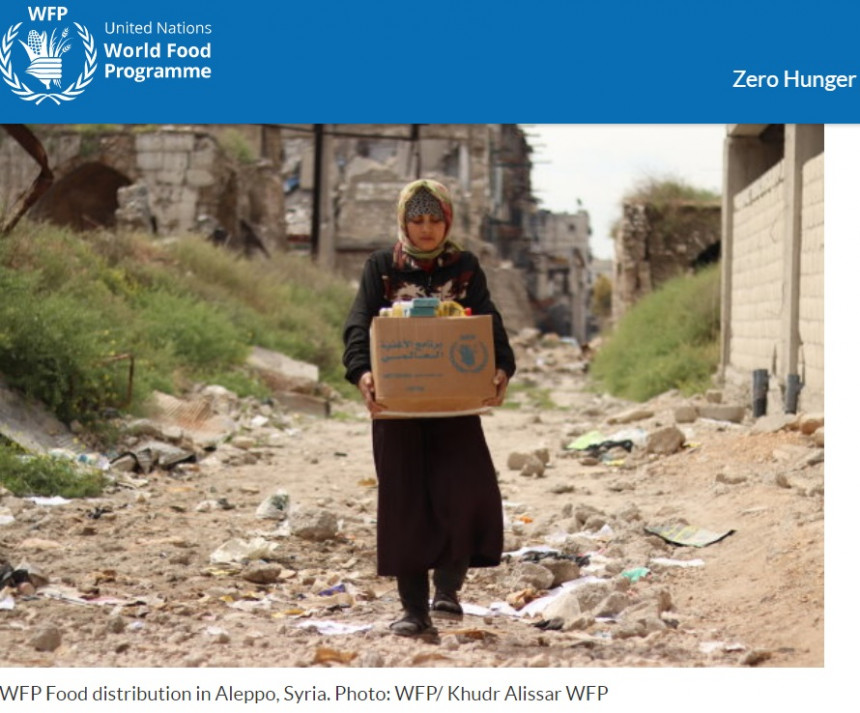Nobel Peace Prize goes to the "lesser evil"

It has to be said - the Oslo Nobel Peace Prize Committee knows how to surprise us. This year, this prestigious award was given to the World Food Program (WFP). Quite unexpectedly, because I am ashamed to admit that I must have missed this year's special achievement of this organization. At the same time, I can only support the decision of the Nobel Committee. If only because it has made its choice by following the beloved Latvian principle, to choose the "lesser evil".
Based on this principle, the main selection criterion for the Nobel Prize is not how much good the person or organization in question has done, but how many will object to this choice and shake their fists at the Committee. But who would dare to loudly oppose giving the Nobel Peace Prize to such a respected and humane organization fighting world hunger? No one. Can the same be said for other alternatives? Unlikely.
What were these alternatives then? The main contenders, who were favored in the bookmakers' offices, were two - climate activist Greta Thunberg and the World Health Organization (WHO). If the Nobel Prize was awarded at the beginning of the year, Thunberg would have no competitors, but much has changed since the beginning of the pandemic, and the Swedish teenagers' fame has faded in the background during Covid-19. There are now other heroes on the agenda, and many of Thunberg’s wishes have come true unexpectedly, but people are not particularly happy about it. For example, there has been a drastic reduction in air traffic, which Thunberg once stood for when crossing the Atlantic with a yacht. It was unlikely that Thunberg herself could have predicted in her wildest dreams that her prayers would be fulfilled so soon.
Awarding the Nobel Prize to the WHO would look even stranger. It would be difficult to explain why such a prestigious award was given to an organization which, if not covered for China, then at least raised doubts as to whether it had done everything possible to limit the spread of the pandemic in its early stages. It should be clarified that this would only be difficult to explain if we were to pretend that it had nothing to do with Trump. If the Trump factor could be mentioned to explain the situation, then there would be no problems. Why?
A large part of the people in the world (not here with us) now focus on one single thought. How to remove Trump from the stage. The New York Times, once the world's most influential, informed, substantial newspaper, has turned into something more akin to the English version of Soviet newspaper Pravda or People's Daily in recent years, where all events are interpreted according to their impact on the global "forces of light" fighting against the "darkness" of Trump.
Looking at the WHO through this prism, everything falls in place. The evil Trump turned against the WHO in an attempt to blame it for his own short-sighted actions at the beginning of the pandemic, so all the "forces of light" must unite more closely around who Tramp is attacking. Nobel would be the best answer to these. Fortunately, the Nobel Prize Committee had the mind to avoid such mental constructions.
Admittedly, if we were to follow the last will of Alfred Nobel literally, it establishes that the award of a peace prize must be given for specific signed peace agreements, and Trump himself would have been most deserving of it. For being the main organizer of a peace agreement between Israel on the one hand and the United Arab Emirates and Bahrain on the other. Although Trump was officially nominated for the award, no one even seriously considered his candidacy. Like many others that we will not mention here.
Based on all this, awarding the Nobel Peace Prize to WFP should be seen as a rather sensible step, as other options would look even worse. However, the fact that the Peace Prize must be awarded to an organization which has not stood out at any point in the given year does not imply anything good either. All the more so because the world is nowhere near a port of happiness and peace, where everyone has become so inclusive, understanding and cooperative that there is no need to even think about peace. But it seems that this has long since been scratched off the agenda of the Nobel Peace Prize Committee.